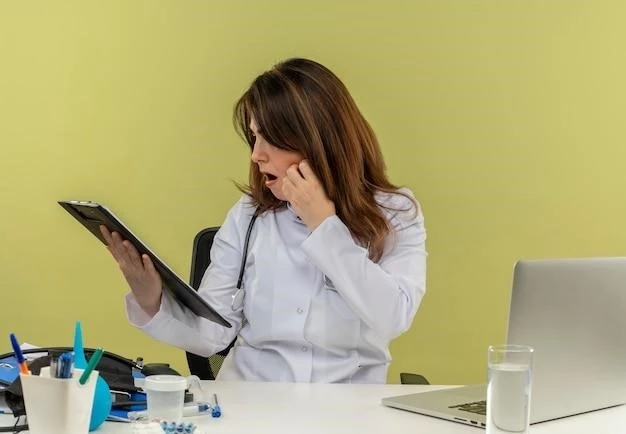Overview of Chanarin Disease
Chanarin Disease is a rare genetic disorder characterized by the accumulation of fats in various organs, including the skin․ Symptoms may include hepatomegaly, ichthyosis, and muscle weakness․
Causes and Symptoms of Chanarin Disease
Chanarin Disease is caused by mutations in the ABHD5 gene, leading to impaired breakdown of fats in the body․ Symptoms can vary but commonly include hepatomegaly (enlarged liver), icthyosis (scaly skin), and muscle weakness․ Children may also exhibit delayed growth and development․ The accumulation of fats in various organs can result in serious complications such as liver dysfunction and heart problems․ It is essential for individuals with Chanarin Disease to receive specialized medical care to manage symptoms and monitor potential complications․
Diagnosis and Treatment of Chanarin Disease
Diagnostic Procedures for Chanarin Disease
Diagnosing Chanarin Disease typically involves a combination of clinical evaluations, skin biopsies, genetic testing, and imaging studies․ Skin biopsies are commonly used to observe the accumulation of fats in the skin cells, while genetic testing can identify mutations in the ABHD5 gene․ Imaging studies such as ultrasounds or MRIs may be performed to assess organ involvement․ Early and accurate diagnosis is crucial for initiating appropriate treatment and managing the progression of the disease․
Treatment Options for Chanarin Disease
Treatment for Chanarin Disease focuses on managing symptoms and preventing complications․ This may include dietary modifications, physical therapy to address muscle weakness, and skincare regimens for ichthyosis․ Regular monitoring of liver function and heart health is essential․ In some cases, liver transplant or cardiac care may be necessary․ Collaborative care between dermatologists, geneticists, hepatologists, and other specialists is crucial to provide comprehensive and individualized treatment for individuals with Chanarin Disease․
Genetic Inheritance of Chanarin Disease
Chanarin Disease follows an autosomal recessive pattern of inheritance, meaning that individuals must inherit two copies of the mutated ABHD5 gene — one from each parent ⎼ to develop the condition․ Carriers of a single mutated gene are usually asymptomatic but have a 50% chance of passing the gene to their children․ Genetic counseling is essential for families with a history of Chanarin Disease to understand the risks and implications of the condition․ Research continues to explore further insights into the genetic mechanisms underlying this rare disorder․
Research Updates on Chanarin Disease
Ongoing research on Chanarin Disease focuses on understanding the underlying genetic mechanisms, identifying new treatment approaches, and improving diagnosis methods․ Recent studies have explored potential gene therapies, enzyme replacement therapies, and targeted interventions to address specific symptoms․ Collaborative efforts involving clinicians, researchers, and patient advocates aim to enhance knowledge about this rare disorder and develop innovative strategies to improve the quality of life for individuals affected by Chanarin Disease․ Stay tuned for further advancements in the field․
Living with Chanarin Disease
Impact on Daily Life
Living with Chanarin Disease can present various challenges, impacting daily life activities․ Individuals may experience fatigue, skin discomfort, and muscle weakness, affecting mobility and overall quality of life․ Managing a specialized care routine and regular medical appointments can be time-consuming and emotionally draining․ Support from healthcare professionals, family, and support groups plays a crucial role in addressing these challenges and enhancing the well-being of those living with Chanarin Disease․ Adaptive strategies and assistive devices may also help optimize daily functioning․
Coping Mechanisms
Coping with Chanarin Disease involves developing effective strategies to manage physical symptoms and navigate emotional challenges․ Maintaining a positive outlook, adhering to prescribed treatment plans, and engaging in relaxation techniques can help individuals cope with the impact of the disease on their daily lives․ Building a strong support network of family, friends, and healthcare providers is essential for emotional support and practical assistance․ Counseling and mental health services may also be beneficial in addressing feelings of stress, anxiety, or depression that can arise from living with a chronic condition like Chanarin Disease․

Chanarin Disease in Children
Chanarin Disease manifestations in children can vary, with symptoms often appearing in early childhood․ Diagnosis and management may pose unique challenges due to the impact on growth and development․ Children with Chanarin Disease may require specialized care from multidisciplinary teams, including pediatricians, geneticists, and developmental specialists․ Early intervention, supportive therapies, and close monitoring are essential to address the specific needs of children affected by the condition․ Research continues to focus on pediatric aspects of Chanarin Disease to enhance treatment outcomes and improve the quality of life for affected children․
Preventive Measures and Support
Preventive Measures for Chanarin Disease
Due to the genetic nature of Chanarin Disease, there are no specific preventive measures to avoid its development․ However, genetic counseling and testing can help identify carriers and inform family planning decisions․ Early diagnosis through newborn screening programs can aid in prompt management and intervention․ Monitoring liver function, heart health, and maintaining a healthy lifestyle can help mitigate potential complications associated with the disease․ While prevention is not currently possible, proactive medical care and support are crucial in improving outcomes for individuals with Chanarin Disease․
Support Groups for Individuals with Chanarin Disease
Support groups play a vital role in providing emotional, educational, and social support to individuals and families affected by Chanarin Disease․ These groups offer a platform for sharing experiences, coping strategies, and resources․ Connecting with others facing similar challenges can help reduce feelings of isolation and provide a sense of community․ Support groups may also facilitate access to specialized information, expert guidance, and advocacy efforts․ By fostering a supportive network, individuals with Chanarin Disease can enhance their overall well-being and navigate the complexities of living with a rare genetic disorder․
